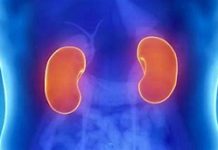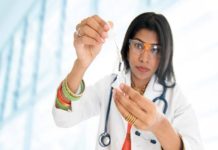It is a disorder related to natural feelings and emotions. In which patient become hopeless, down hearted. When you’re trapped in depression, it feels like nothing will ever change and person eventually became antisocial and will cut of from other. But it’s important to remember that feelings of helplessness and hopelessness are symptoms of depression these are not the reality of your situation.
Am I depressed?
If you identify with several of the following signs and symptoms—especially the first two—and they just won’t go away, you may be suffering from depression.
You feel hopeless and helpless
You’ve lost interest in friends, activities, and things you used to enjoy
Your sleep and appetite has changed
You are much more irritable, short-tempered, or aggressive than usual
You feel tired all the time
You can’t concentrate or find that previously easy tasks are now difficult
You’re consuming more alcohol than normal or engaging in other reckless behavior
You can’t control your negative thoughts, no matter how much you try

Signs and symptoms of depression include:
Feelings of helplessness and hopelessness. A bleak outlook—nothing will ever get better and there’s nothing you can do to improve your situation.
Appetite or weight changes. Significant weight loss or weight gain—a change of more than 5% of body weight in a month.
Loss of interest in daily activities. You don’t care anymore about former hobbies, pastimes, social activities, or sex. You’ve lost your ability to feel joy and pleasure.
Loss of energy. Feeling fatigued, sluggish, and physically drained. Your whole body may feel heavy, and even small tasks are exhausting or take longer to complete.
Sleep changes. Either insomnia, especially waking in the early hours of the morning, or oversleeping.
Anger or irritability. Feeling agitated, restless, or even violent. Your tolerance level is low, your temper short, and everything and everyone gets on your nerves.
Self-loathing. Strong feelings of worthlessness or guilt. You harshly criticize yourself for perceived faults and mistakes.
Concentration problems. Trouble focusing, making decisions, or remembering things.
Reckless behavior. You engage in escapist behavior such as substance abuse, compulsive gambling, reckless driving, or dangerous sports.
Unexplained aches and pains. An increase in physical complaints such as headaches, back pain, aching muscles, and stomach pain.
Types of Depression
Major Depression
Read about the causes and symptoms of major depression and the available treatments. Talk openly with your doctor if you have these major depression symptoms because help is available.
Chronic Depression (Dysthymia)
Chronic depression or dysthymia is a milder form of depression that affects millions. Find out if you or a loved one has chronic depression.
Bipolar disorder – is characterized by cycling mood changes. It is also called manic- depressive illness. Bipolar disorder involves cycles of depression and elation or mania. Mania often affects thinking, judgment, and social behavior in ways that cause serious problems and embarrassment. This phase is often a chronic recurring condition.
Causes of Depression
For some people, a combination of many factors may be causing clinical depression. For others, a single factor may be triggering the illness. Depression often is related to the following.
Imbalance of brain chemicals called neurotransmitters – Changes in these brain chemicals may cause or contribute to depression.
Negative thinking patterns – People who are pessimistic, have low self-esteem, worry excessively, or feel they have little control over life events are more likely to develop depression.
Certain diseases or illnesses – Ailments such as cancer, heart disease, Parkinson’s disease, Alzheimer’s disease, diabetes and hormonal disorders can often trigger clinical depression. This is referred to as co-occurring depression.
Difficult life events – Events such as the death of a loved one, divorce, financial strains, history of trauma, moving to a new location or significant loss can contribute to the onset of clinical depression.
Family history of depression – A genetic history of clinical depression can increase one’s risk for developing the illness. But depression also occurs in people who have had no family members with depression.
Frequent and excessive alcohol consumption – Drinking large amounts of alcohol on a regular basis can sometimes lead to clinical depression.
Certain medications – Some medication can actually cause clinical depression. Therefore, it is important that people inform their doctors of all medications they are taking and report any depressive symptoms.
Treatments of depression
Depression is considered as a long term disease but some times it can be short term also a specific medical Depression is not just the result of a chemical imbalance in the brain that can be simply cured with medication. It’s caused by a combination of biological, psychological, and social factors. In other words, your lifestyle choices, relationships, and coping skills matter just as much—if not more so—than genetics.
Talk to others
Even if you dont feel like talking to someone this is the best therapy I will consider for depressive patients, reach out to siblings, your family members, friends, relative they will surely help you out or you will feel good after talking with loved ones.
Explore new places or go out
When ever you will feel like worthless, hopeless explore new places, come out from your room start with small activities and build up from there. Exercise-do regular exercise it can be as effective as antidepressant
Improve food habbit
Reduce your intake of foods that can adversely affect your mood, such as caffeine, alcohol, trans fats, sugar, and refined carbs. And increase mood-enhancing nutrients such as Omega-3 fatty acids.
Psychotherapy
There are a wide number of different types of effective therapeutic approaches utilized for the treatment of depression today. These range from cognitive behavioral therapy, to behavioral therapy (ala Lewinsohn), to interpersonal therapy, to rational emotive therapy, to family and psychodynamic approaches. Both individual and group modalities are commonly used, depending upon the severity of the depressive episode and the local resources within an individual’s community.
Herbal Therapy
In the past few years, much interest has risen in the use of herbs in the treatment of both depression and anxiety.
Hypericum perforatum, an herb used extensively in the treatment of mild to moderate depression in Europe, has recently aroused interest around the world. However, the scientific studies that have been conducted on its use have been short-term and have used several different doses.
Music therapy
Evidence is beginning to emerge that music therapy can improve the mental health of people with depression. We examine possible mechanisms of action of this complex intervention and suggest that music therapy partly is effective because active music-making within the therapeutic frame offers the patient opportunities for new aesthetic, physical and relational experiences
Electro convulsive therapy (ECT)
This treatment is recommended when people cannot take or do not improve with medication when the risk of suicide is high, or if someone is debilitated due to another physical illness.
Medication
Medications and psychological counseling (psychotherapy) are very effective for most people with depression. Your primary care doctor or psychiatrist can prescribe medications to relieve symptoms. However, many people with depression also benefit from seeing a psychologist or other mental health professional.
Antidepressant medication acts on chemical pathways of the brain.
Antidepressant medications are not habit-forming. It may take up to eight weeks to notice an improvement.
The two most common types are selective serotonin reuptake inhibitors (SSRIs) and tricyclic antidepressants (TCAs).
Do’s and Dont’s in Depression
Depressed person needs a lot of love and care to get back to normal.
Don’t stop taking your antidepressant medication too soon or without the doctor’s knowledge. Inform the doctor about any side-effects.
Take good care of the person during treatment for clinical depression. Be sure to get plenty of rest, sunshine, exercise and nutritious, well-balanced meals. Reducing the stress in life will also help.
Written By:
 Deepti Rawat
Deepti Rawat
Trainee Medical Coder, Delhi










